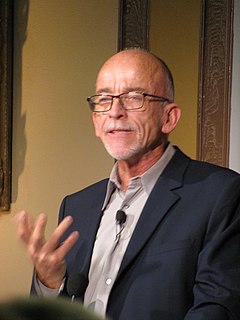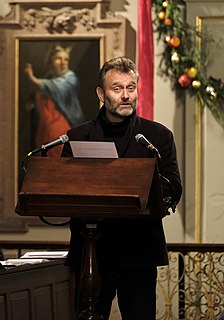A Quote by Gautama Buddha
To him in whom love dwells, the whole world is but one family.
Related Quotes
Family was even a bigger word than I imagined, wide and without limitations, if you allowed it, defying easy definition. You had family that was supposed to be family and wasn't, family that wasn't family but was, halves becoming whole, wholes splitting into two; it was possible to lack whole, honest love and connection from family in lead roles, yet to be filled to abundance by the unexpected supporting players.
We have a great deal more kindness than is ever spoken. The whole human family is bathed with an element of love like a fine ether. How many persons we meet in houses, whom we scarcely speak to, whom yet we honor and who honor us! How many we see in the street, or sit with in church, whom though silently, we warmly rejoice to be with! Read the language of these wandering eye-beams. The heart knoweth.
Try to comprehend the unity of all; there is one God, and all are one in Him. If we can but bring home to ourselves the unity of that Eternal Love, there will be no more sorrow for us; for we shall realize, not for ourselves alone but for those whom we love, that whether we live or die, we are the Lord's, and that in Him we live and move and have our being, whether it be in this world or in the world to come.
Being in grief, it turns out, is not unlike being in love.
In both states, the imagination's entirely occupied with one person. The beloved dwells at the heart of the world, and becomes a Rome: the roads of feeling all lead to him, all proceed from him. Everything that touches us seems to relate back to that center: there is no other emotional life, no place outside the universe of feeling centered on its pivotal figure.
You also realize, Venerable Brothers, that the Eucharist is reserved in churches or oratories to serve as the spiritual center of a religious community or a parish community, indeed of the whole Church and the whole of mankind, since it contains, beneath the veil of the species, Christ the invisible Head of the Church, the Redeemer of the world, the center of all hearts, 'by whom all things are and by whom we exist'.
Woe to him whom this world charms from Gospel duty. Woe to him who seeks to pour oil upon the waters when God has brewed them into a gale. Woe to him who seeks to please rather than to appal. Woe to him whose good name is more to him than goodness. Woe to him who, in this world, courts not dishonor! Woe to him who would not be true, even though to be false were salvation. Yea, woe to him who, as the great Pilot Paul has it, while preaching to others is himself a castaway.
































